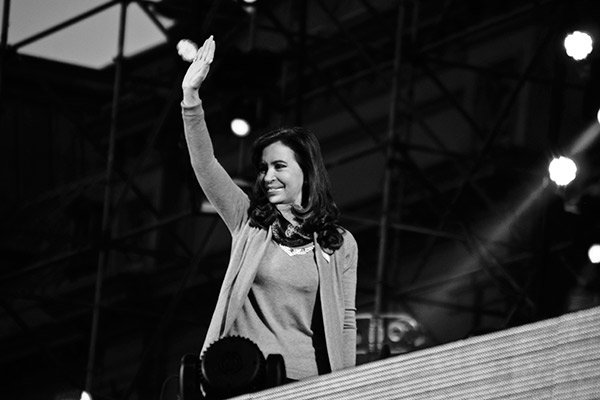During her last speech to Congress on 1 March, Argentinian President Cristina Fernandez de Kirchner (CFK) name-checked an apparently complimentary tweet by Joseph Cotterill of The Financial Times: “They did it. They finally did it. Argentina’s 2033 restructured bonds are trading above par”. Minutes later, Cotterill tweeted back:
Thanks for the mention in your speech, @CFKArgentina. But I fear that the bond’s price is going up the less time you have left in office.
— Joseph Cotterill (@jsphctrl) March 1, 2015
CFK was hoping to invoke the praise of a prestigious international outlet like the FT to show up the “unfair” treatment she believes the rest of the media dishes out. The bluntness of Cotterill’s response – and the celebrity it brought him on Twitter – illustrates just how tense the relationship between Argentina and the international community is at the moment.
Several indicators reflect the world’s loss of confidence in the country. The World Bank ranks Argentina 124 out of 189 for Ease of Doing Business, down from 101 in 2007 when CFK took office. Argentina ranks amongst the worst of its South American peers in terms of the yield on 10 year sovereign bonds, another widely used measure of investor confidence in a country. Argentina’s yield, at 9%, is only better than Venezuela’s.
Argentina’s international image has worsened in the last couple of years, lagging behind most of the region in many aspects. It’s not just the economic policies that prompted international businesses to close their branches in the country or withdraw their investments. It’s also diplomatic controversies such as CFK appearing to mock the Chinese accent on Twitter.
Rebuilding Argentina’s soft power
In recent years, many countries have undergone a rebranding to make their image abroad better and by doing so increase tourism and investment. Although more focused on tourism, Peru and Mexico are good regional examples of how valuable an increase in soft power can be to change overall perceptions, with significant spillover effects for the economy.
2015 is a crucial year for Argentina. After 12 years of Kirchnerism, the elections in October will see a new President come to power – the law doesn’t allow CFK to run again. The three main candidates expected to win the October election are believed to be more business friendly, but will that be enough for Argentina to regain the international community’s trust?
A line in the sand needs to be drawn, as loudly as possible, under the CFK era. If the next government understands the importance of soft power, it will have a shot at ensuring Argentina is never again referred to as, in the words of The Economist, “a country that stood out as the country of the future but got stuck in the past”.

